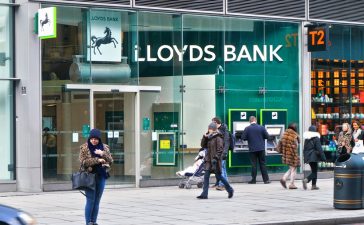This brings total penalties levied against all lenders to date to €81.6 million ($96.21 million)
The Irish Central Bank’s announcement on Thursday that it has fined Ulster Bank a record €37.8 million ($44.57 million) for its role in the tracker mortgage scandal brings total penalties levied against all lenders to date to €81.6 million ($96.21 million).
However, Ulster Bank’s record for the highest fine yet will likely be short lived as the regulator continues investigations into the State’s two biggest mortgage lenders. AIB has set aside €70 million ($82.53 million) so far for likely fines for the bank and its EBS unit, while Bank of Ireland has made an undisclosed provision.
The previous record was a fine of €21 million ($24.76 million) levied on Permanent TSB in May 2019, while its former subprime unit Springboard Mortgages was ordered in 2016 to pay a €4.5 million ($5.31 million) penance. KBC Bank Ireland was fined €18.3 million ($21.58 million) last September.
Ulster Bank, which said last month that it is quitting the Irish market, was found by a five-year Central Bank investigation to have come up with “deliberate strategies” to shift borrowers off cheap mortgages linked to the European Central Bank’s main rate during the financial crisis, and only put those who complained on the correct rate.
The bank admitted to 49 separate regulatory breaches in relation to the tracker debacle. The regulator determined that these warranted nearly €54 million ($63.67 million) fine, but a standard 30 per cent settlement discount brought it down to €37.8 million ($44.57 million).
The bank “devised and sought to implement a customer campaign to encourage certain tracker customers to convert their tracker rates to fixed rates during 2008, without informing them that they would not be entitled to return to their original tracker rate if they moved to a fixed rate,” the Central Bank said.
While this particular campaign ultimately failed, thousands of customers opted for periods of fixed-rate loans in the normal course of managing their borrowings.
In 2011, Ulster Bank decided to only return customers who complained about being on the wrong rate to the correct tracker rate – after calculating what it would cost to do the right thing by all affected customers. The 352 borrowers that did complain were handled on a case-by-case basis and not all afforded the same redress, the Central Bank said.
Having initially provided its customers with unclear information and having failed to warn them of the very real consequences of their mortgage-related decisions, UBID (Ulster Bank Ireland DAC) put further impediments in its customers’ way, said Seána Cunningham, the Central Bank’s director of enforcement.
The regulator also found that Ulster Bank failed to properly implement “stop the harm” principles when the Central Bank started the tracker mortgage examination (TME) in 2015.






